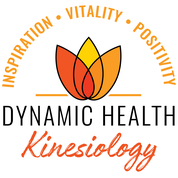Last night I went to see ‘The gut movie’ by Kale Brock.
I wanted to share my take away messages with you.
Although I didn’t learn anything new about the gut (as this is an area I already follow quite closely) it did reiterate some important points I wanted to share.
First of all I always find it fascinating learning about different cultures and other peoples way of life so watching Kale’s journey living with the San Bushmen was insightful and fascinating. What made it extra special to watch was the fact that 2 years ago on a family trip to Africa I too met this incredible tribe (but was not fortunate enough to actually live with them).
They did have a great sense of humour playing a prank on us. They told us they were catching a rabbit and then proceeded to pull a plant out of the ground and throw it at us as if it was a rabbit. They had my whole family screaming. It was quite amusing.
There is something so special about all these nomadic tribes who live off the land, have no technology or western comforts and yet are so happy. What they do have is a great sense of community, connection with others and the land, eating real food, being grateful for what they do have and enjoying life for what it is. It’s so easy to get caught up in what we don’t have that sometimes stripping it all back to the basics shows us what matters most.
When it comes to gut health here are the main points I took away:
- Gut health and the microbiome (all the microbes that live in and on us) play a hugely important part in our overall health.
- There has been an association found between poor microbiota diversity and many western diseases such as cardiovascular disease, autoimmune disease, allergy, certain cancers, Alzheimer’s, depression, ADHD, obesity, diabetes and several inflammatory disorders.
- A sterile environment and over prescription of antibiotics has contributed to a lack of diversity of these good bugs we require.
- All cultures that have low rates of these western diseases also appear to have a wide range of these bacteria in their gut (although the types of bacteria differ from culture to culture).
- In terms of diet they all consume a large amount of plant-based food especially those foods high in fiber and starch.
- Bacteria that are necessary for colonising our guts may also be found on the food when it is freshly picked or in the dirt. Eating organic or growing your own vegetables is best.
- Resistance starch found in green bananas, cooked and cooled potatoes, rice and yams as a few examples helps to feed these good bugs and heal damaged gut tissue.
- Changing the microbiome has been shown in several case studies to be able to reverse certain diseases.
Basically going back to basics is always the best way. It is so easy to get confused about nutrition with all the information we are constantly inundated with. If you are eating real food that is not processed, in season and freshly picked that will always be best. Eat lots of plants and some of everything else. No food- if it is ‘real’ food is bad. You don’t need to be afraid of food. The fear is what is most unhealthy. Meat will not kill you and shock horror neither will sugar. It is only when these things are eaten in the huge quantities we are consuming them in, when they are sprayed with chemicals, are overly refined or have added preservatives that they become detrimental to our health.
Do you want to know the real secret to good health?
It’s not even about diet and exercise.
All the cultures in the world, which live longest and have the least disease, have one thing in common. It’s about lifestyle not fad diets. Not even diets at all. The only aspect of diet they all have in common is that they all consume some form of legume.
Their lifestyle for longevity and health includes:
- Moderate, regular physical activity.
- Life purpose.
- Stress reduction.
- Moderate calories intake.
- Plant-based diet.
- Moderate alcohol intake, especially wine.
- Engagement in spirituality or religion.
- Engagement in family life.
- Engagement in social life.
I think there needs to be some reframing around our lifestyle to put things such as life purpose, social connection and spirituality as top priorities (or simply as priorities at all). Only then will movement and eating right for our bodies come naturally and easily.
The gut is an area of great interest and importance and we will only be seeing more information being discovered in the future. However, it is nothing to be overwhelmed about. Simply eat a wide variety of plant-based foods including resistant starch and then listen to your body when it comes to everything else. When you focus on things like spirituality, stress reduction, life purpose and connection with others you automatically becomes more in tune with your body. You will then notice that you are aware of what you should and should not be eating. As everyone is different there is no 1 diet that suits all. Know your body and give it what it is asking for. It is that simple!
Hi everyone! My name is Dionne and I am a fully qualified Kinesiologist and Naturopath. I have been raised with the use of natural medicine so have experienced its fantastic effects first hand. One of my biggest LOVES has always been food so by combining this love and my upbringing Naturopathy was definitely the degree for me. I also belive that our emotions underpin everything when it comes to our health so I teach a lot about emotional well-being. This blog is aimed at sharing some helpful facts about food and the way it can influence your health. It is also a way for me to share delicious but nutritious recipes as I discover them myself!

